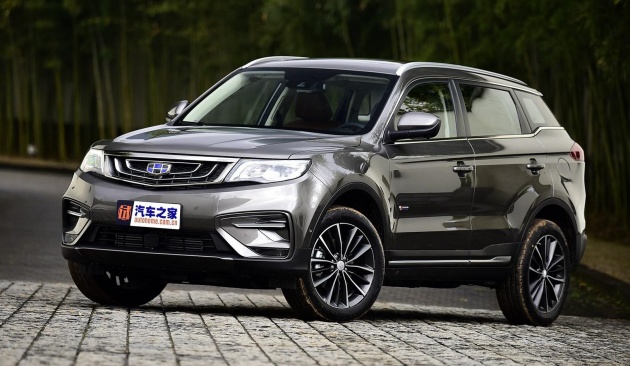Geely is planning on building a new plant in the eastern port city of Ningbo that is capable of producing 250,000 units of larger-sized vehicles annually. It expects the move to boost sales growth and help meet the goal of selling over two million vehicles by 2020, sources tell Automotive News. The new facility will be erected near its existing assembly plant (also in Ningbo), as per the sources and information on a Geely-owned construction bidding procurement website.
The Chinese carmaker, once known for making affordable cars of sometimes subpar quality, has assumed upmarket aspirations as of late, backed by its acquisition of Volvo in 2010. Since then, sales has boomed significantly, especially in 2016 with the introduction of more feature-packed vehicles. With consumers in the world’s largest auto market now attracted to larger vehicles such as MPVs and SUVs, Geely is looking to cash in on these prospective markets with new models like the VF11 and SX11.
Geely’s new plant will not only help facilitate production of these new models but also also ramp up launches at its new hip brand, Lynk & Co. The company plans to invest 3.4 billion yuan (RM2.06 billion) in the new plant, which will feature two assembly lines. Presently, the overall investment planned for the facility has not been revealed.
Meanwhile, Geely announced in 2016 that it aims to produce and sell two million vehicles and become a major global automaker by 2020. So far, the company seems right on track, with sales forecasted to reach 1.58 million vehicles this year.
LMC Automotive’s senior market analyst, Alan Kang, said Ford and Hyundai are starting to lose market share to Geely in China, with customers flocking to purchase the Chinese automaker’s range of vehicles. Apparently, these models were developed by benchmarking Volvo technology and expertise, making them rather advanced vehicles by global standards.
For example, the Geely Boyue – which forms the basis for the upcoming Proton SUV – and Borui sedan, are priced at 100,000-160,000 yuan (RM61k to RM97k) and 120,000-180,000 yuan (RM73k to RM110k), respectively. “But they need bigger, fancier cars to keep growing,” Kang said. “Geely needs to do that to better compete with global brands.” Geely also needs bigger cars to raise transaction prices to grow revenue, the report adds.



